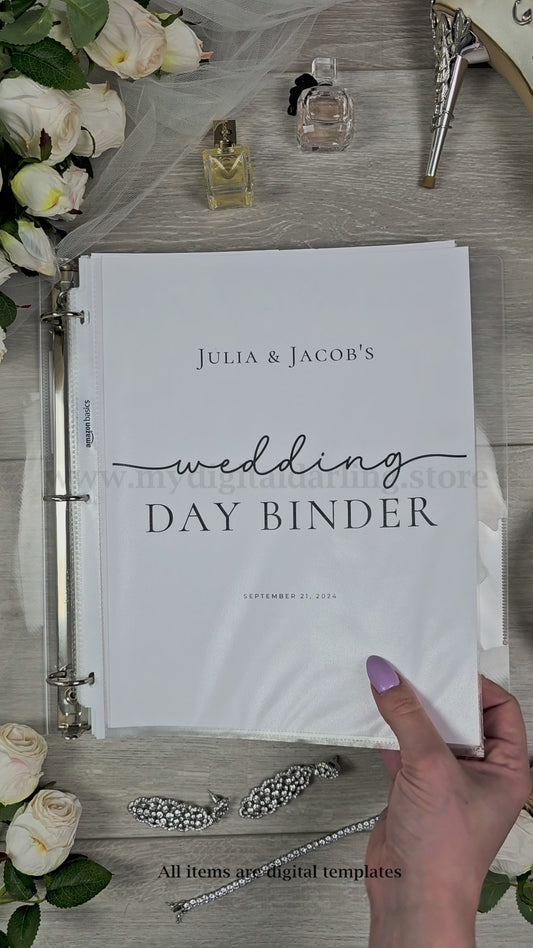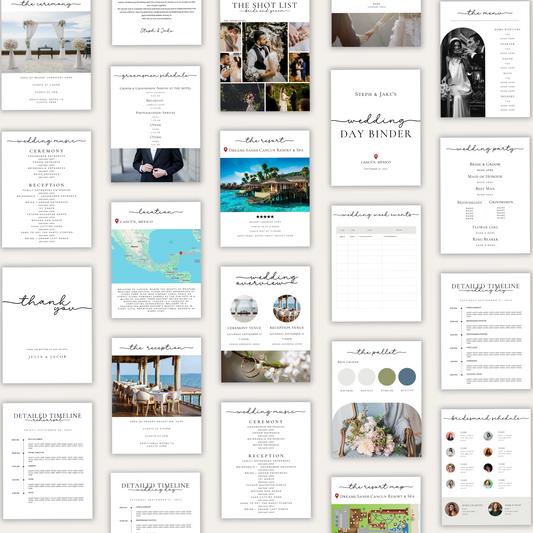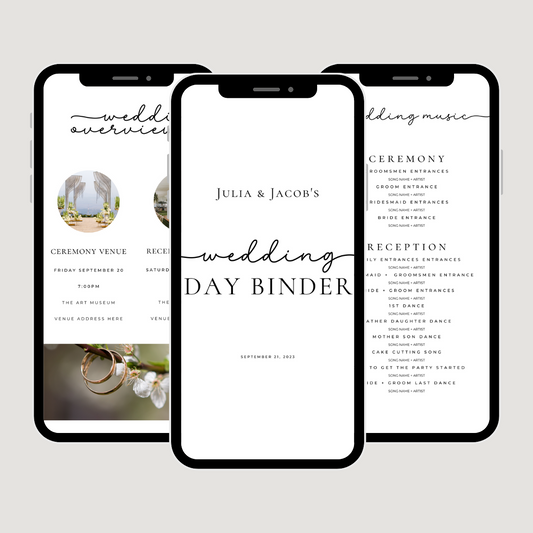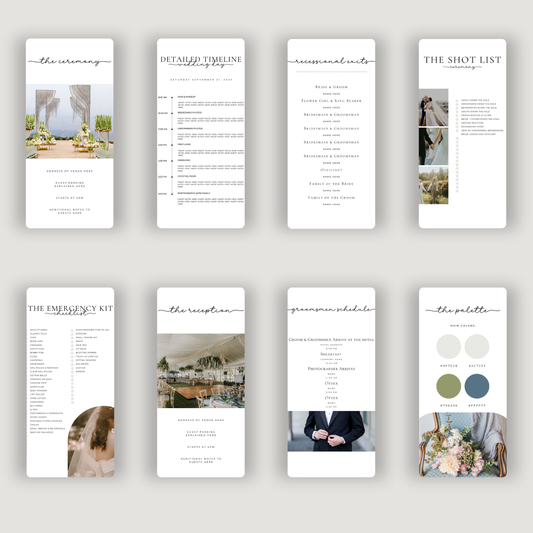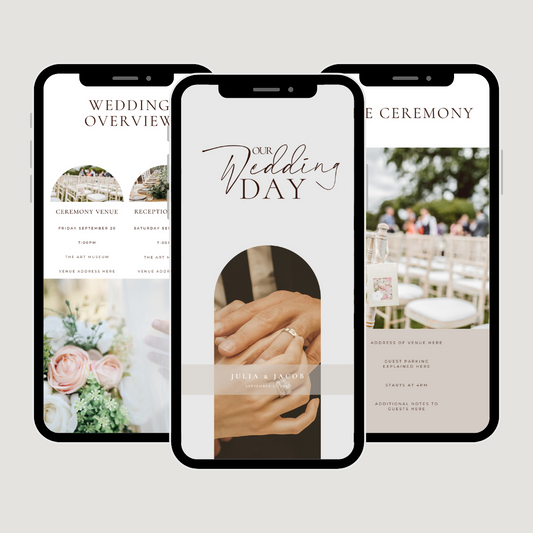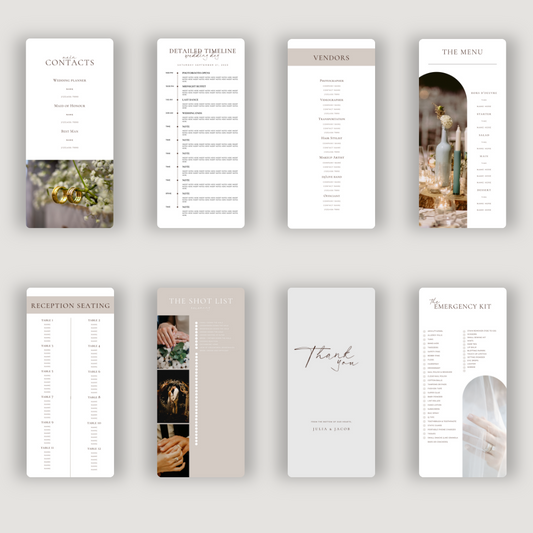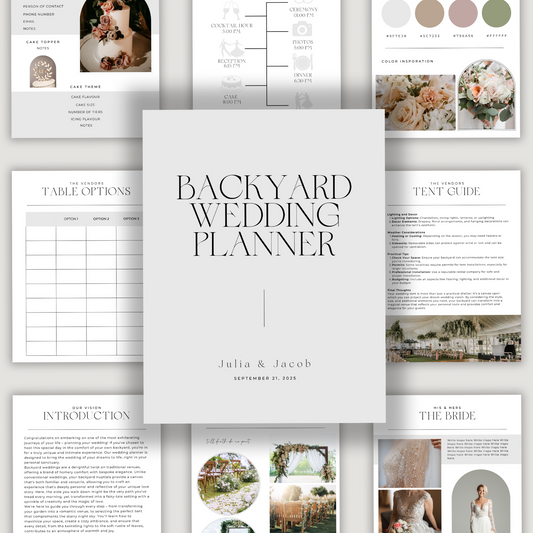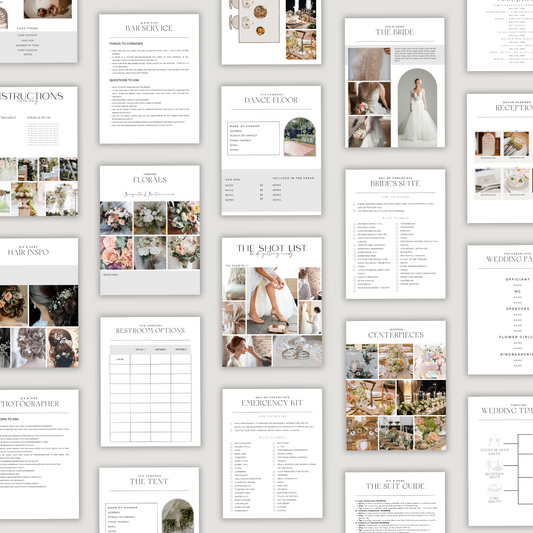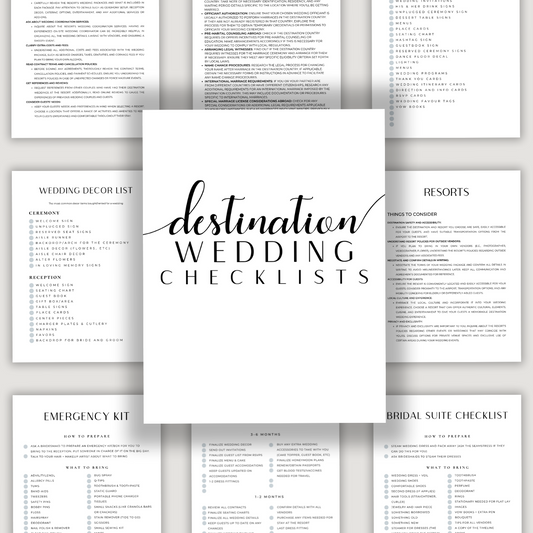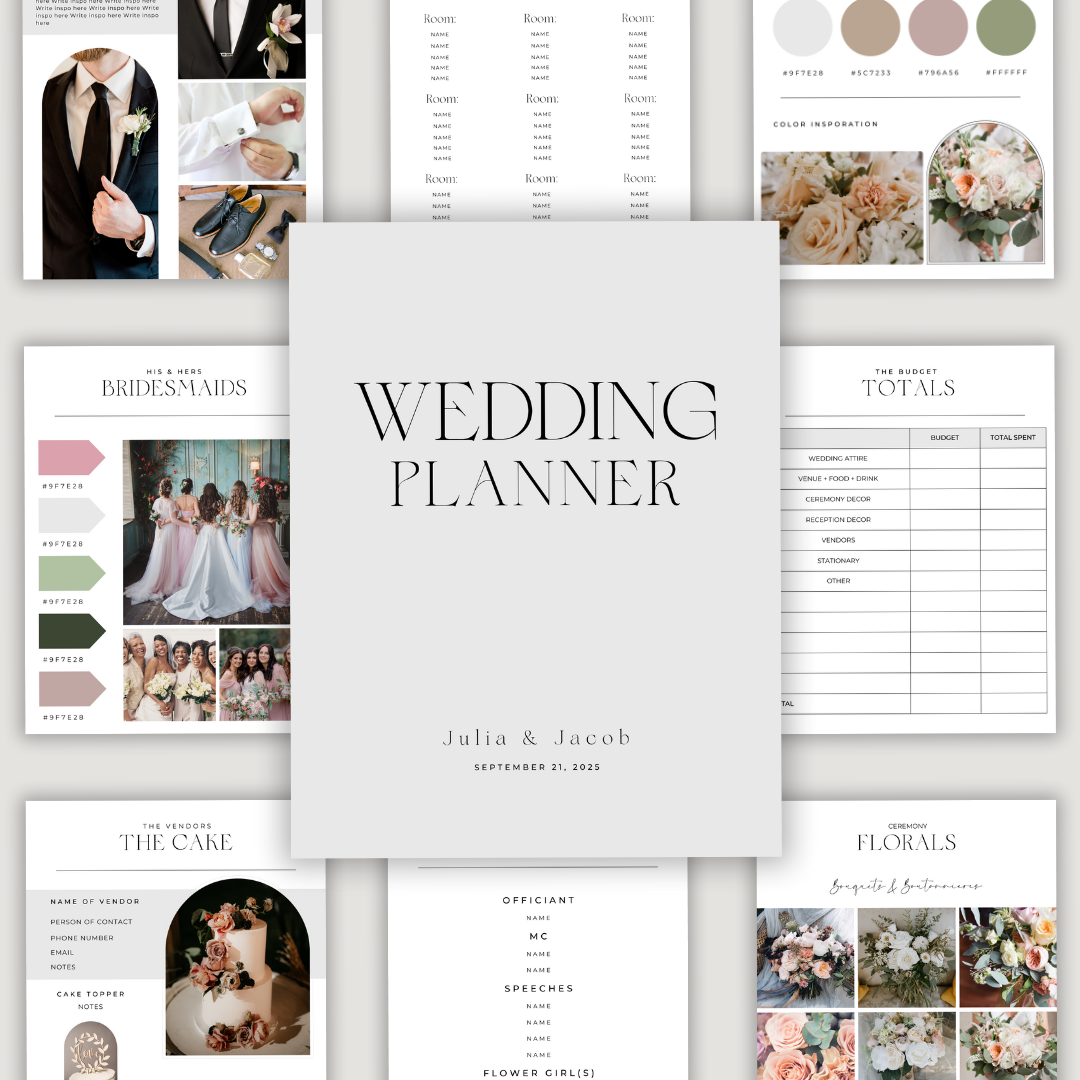Can Planning a Wedding Cause Anxiety?
Share
Planning a wedding is often portrayed as a time filled with excitement and joy, but for many brides and grooms, it can also bring a significant amount of stress and anxiety. Between managing a budget, making countless decisions, and trying to meet everyone’s expectations, it’s no wonder that wedding planning can feel overwhelming. But can planning a wedding actually cause anxiety? The answer is yes, and it’s more common than you might think.
If you’re feeling anxious about your wedding, know that you’re not alone. This post will explore why wedding planning can trigger anxiety and offer some helpful strategies for managing the stress along the way.
Why Wedding Planning Can Cause Anxiety
1. High Expectations
Weddings are often seen as one of the most important days of a person’s life, and with that comes high expectations. You might feel pressure to make everything perfect—not only for yourself but also for your family, friends, and guests. This pressure can lead to anxiety, as the fear of making mistakes or disappointing others starts to build.
2. Decision Overload
From choosing the venue and picking out flowers to selecting the menu and writing invitations, planning a wedding involves an overwhelming number of decisions. Decision fatigue can set in, making you feel mentally exhausted and anxious about making the wrong choices.
Pro Tip: Our Wedding Planner can help reduce decision fatigue by organizing your tasks and breaking down big decisions into smaller, more manageable steps. This way, you can focus on one thing at a time.
3. Managing a Budget
Weddings are expensive, and sticking to a budget can be one of the most stressful parts of the planning process. You may worry about overspending or feel anxious about not being able to afford the wedding you’ve envisioned.
Tip: Keep track of your spending using a detailed budgeting tool. Our Wedding Day Binder includes budget templates to help you monitor your expenses, ensuring you stay on track without the stress.
4. Family and Friend Dynamics
Weddings often bring family and friends together, but they can also bring up tensions, disagreements, and unsolicited advice. Whether it’s navigating tricky family dynamics or trying to please everyone, these situations can create added stress and anxiety.
5. Perfectionism
For many brides and grooms, the desire to make everything perfect can lead to unrealistic expectations. When things don’t go exactly as planned, it can trigger feelings of frustration and anxiety.
Signs That Wedding Planning Might Be Causing You Anxiety
If you’re feeling overwhelmed, it’s important to recognize the signs of anxiety early on so you can take steps to manage it. Here are some common signs that wedding planning may be affecting your mental health:
- Trouble sleeping or staying awake worrying about the wedding
- Feeling irritable or easily frustrated by small issues
- Overthinking decisions or feeling paralyzed by choices
- Physical symptoms like headaches, stomachaches, or muscle tension
- Avoiding tasks related to the wedding because they feel too overwhelming
If you’re experiencing any of these symptoms, it’s important to take a step back and give yourself permission to prioritize your mental health.
How to Manage Wedding Planning Anxiety
1. Break Down Tasks
One of the most effective ways to reduce anxiety is to break down large tasks into smaller, more manageable steps. Instead of trying to do everything at once, focus on one decision or task at a time. This will help prevent you from feeling overwhelmed and give you a sense of accomplishment as you check things off your list.
Tip: Our Wedding Planner provides pre-built checklists and timelines to help you stay organized and tackle tasks step by step, so you don’t have to juggle everything at once.
2. Set Realistic Expectations
It’s easy to fall into the trap of wanting everything to be perfect, but the reality is that no wedding is flawless. Give yourself permission to embrace imperfections and remember that the most important part of your wedding is celebrating your love and commitment—not the minor details.
3. Delegate Responsibilities
You don’t have to do everything alone. Whether it’s enlisting the help of your wedding party, partner, or family, delegating tasks can take a huge weight off your shoulders. Even small tasks like picking up decorations or confirming vendor details can be handled by others, giving you more time to focus on what matters most.
Pro Tip: Our Wedding Day Binder includes a task delegation section so you can easily assign roles and make sure everything runs smoothly on the big day.
4. Schedule Time for Self-Care
When planning a wedding, it’s easy to neglect your own needs, but taking care of yourself is crucial for managing stress. Whether it’s taking time for a walk, enjoying a spa day, or simply spending time with friends, scheduling breaks will help you recharge and clear your mind.
Tip: Set aside "wedding-free" time, where you and your partner can talk about anything but the wedding. This will give you space to relax and enjoy each other’s company without the pressure of planning.
5. Set Boundaries with Family and Friends
While it’s great to have the support of family and friends, it’s also important to set boundaries. If certain people are adding to your stress or giving unsolicited advice, let them know that while you appreciate their help, you need space to make decisions that feel right for you and your partner.
6. Consider Professional Help
If your anxiety becomes unmanageable, don’t hesitate to seek professional help. A therapist can provide tools to help you cope with stress and anxiety, offering guidance on how to navigate this intense time with greater ease.
Final Thoughts
It’s perfectly normal to experience some anxiety while planning a wedding. After all, it’s a major life event filled with big decisions and high expectations. But by breaking tasks into manageable steps, setting realistic expectations, and prioritizing your mental health, you can reduce stress and enjoy the journey of wedding planning.
For a little extra help staying organized, our Wedding Day Binder and Wedding Planner offer tools to guide you through the process, ensuring you stay on top of every detail without the overwhelm.
Remember, your wedding is a celebration of love, not perfection. Take a deep breath, lean on your support system, and don’t forget to enjoy the moments that matter most.
Disclaimer
This blog post is intended to provide general information about stress and anxiety during wedding planning. It is not intended to replace professional medical advice, diagnosis, or treatment. If you are experiencing severe anxiety, emotional distress, or mental health concerns, please consult a licensed mental health professional or healthcare provider. Always seek the advice of your physician or other qualified health provider with any questions you may have regarding a medical condition or mental health issue.


